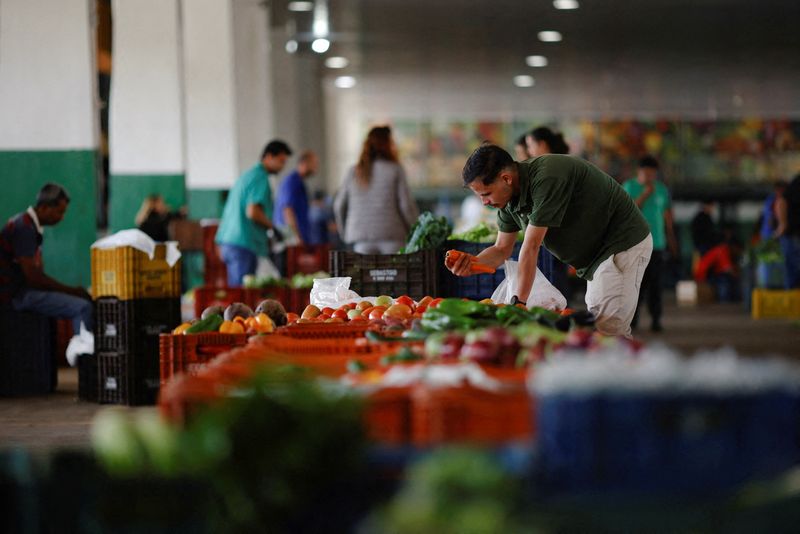By Gabriel Burin
(Reuters) - Brazil's annual inflation is forecast to have reached a one-year high in October on steeper energy and meat prices caused by a severe drought, while a host of risks continue to muddy the outlook for 2025, a Reuters poll found.
Facing a number of worrying trends, Banco Central do Brasil (BCB) is likely to deliver a 50 basis-point rate hike to 11.25% later on Wednesday, in contrast to its global peers in policy easing mode.
The IPCA inflation index, to be released on Friday, is expected to have risen to 4.72% last month from a year earlier, the highest since 4.82% in October 2023, according to the median estimate of 18 economists polled Oct. 30-Nov. 4.
It would also be the first time since January the 12-month measure breaches a wide official goal of 3% plus/minus 1.5 percentage points. The monthly variation is projected to come in at 0.53%, the fastest since 0.83% in February.
"The highest single-item contribution could come from electricity prices, reflecting increased tariffs for households...(and) food prices may accelerate vs. September on rising protein prices," UBS analysts wrote in a report.
Recent rains have improved conditions for agricultural production and energy output, alleviating pressures in those sectors this month. But the dry period is not over yet in the Southern Hemisphere - and there are other risks.
Barclays (LON:BARC) analysts wrote in a report the central bank could keep raising its benchmark rate to 12.75% in the first half of 2025 "given persistent BRL weakness, lingering fiscal uncertainty and climate-related shocks to current inflation."
Costs of imported goods and services in the country have increased this year following a 16% drop in the value of the Brazilian real, related in part to investor worries over a complex budget picture.

Seeking to address those concerns, the government is preparing measures to curb spending that would put health and education expenditures under a general cap that already applies to other outlays.
Initial optimism over fiscal dynamics in President Luiz Inacio Lula da Silva's term dissipated this year as, despite improving tax revenues, public spending remains a challenge that is driving up long-term inflation expectations.
(Reporting and polling by Gabriel Burin; Editing by Peter Graff)